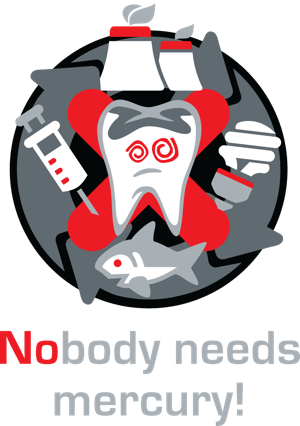 In these days of ever-shorter attention spans, you can tell you’ve made a real impact when people are still reacting to what you’ve done even months after the fact and without the help of continuous media coverage.
In these days of ever-shorter attention spans, you can tell you’ve made a real impact when people are still reacting to what you’ve done even months after the fact and without the help of continuous media coverage.
Case in point: Dr. Oz’s talking about the health risks of mercury amalgam fillings on his TV show back in March.
The American Dental Association is still upset about it. Seems it wasn’t enough to just voice their objection to the episode. Now they’ve cut their ties with Sharecare, a consumer website co-founded by Dr. Oz. According to the ADA press release,
The Association decided to end its connection with the consumer website…after a March 28 episode of “The Dr. Oz Show” provided misleading information on dental amalgam. Producers refused to interview an ADA spokesperson for the segment, but Dr. Oz, who remains closely tied to Sharecare, did read a brief statement about dental amalgam attributed to the ADA.
“As a science-based organization, we should always welcome inquiry, but we should not be seen as supporting the promotion of misleading information unsupported by the best science,” said ADA President Robert A. Faiella.
Apparently, “science” is only that with which the ADA agrees and not the mountains of research demonstrating harm from dental mercury and putting to rest the standard pro-amalgam talking points:
Dental amalgam is one of several safe and effective choices available to dental patients. It is a durable, cost-effective, long-lasting filling material, making it appropriate for restoring back teeth, and more affordable than gold or tooth-colored fillings made of composite resins.
Actually, when you responsibly factor in health, social and environmental costs, composites are considerably less expensive than amalgam. When properly placed, they’re at least as durable and in some cases more so, making them more cost-effective, as well.
Oh, yes: And they’re also not full of one of the most potent neurotoxins there is.
For such reasons, a 2012 paper out of the School of Public Health at the University of Illinois at Chicago asserted plainly that “the ultimate goal of a phase-out of virtually all usage of dental mercury is recommended…possible and advisable.”
Unless, of course, you are ADA and remain beholden to the ideology that led to the group’s founding back in the mid-19th century: the belief that, contrary to evidence and the preponderance of professional opinion, mercury was a-ok for plugging holes in teeth.
In his own reaction to the ADA’s recent actions, Dr. Mercola does a typically fine job of honing in on the key issues with respect to the pro-mercury orthodoxy. It’s well worth a read. He also includes contact info for urging the FDA to quit the silent stalling, “heed the advice of its own scientists” and at least move forward with protecting our children from dental mercury.
We urge you to get involved, too. Write some letters. Make some calls. Make some noise.
It’s simply unconscionable that in this day and age, with our advanced technology and dental materials, anyone should continue to rely on antique practices of toxic dentistry.
Also see “The Metal-Free (R)Evolution”